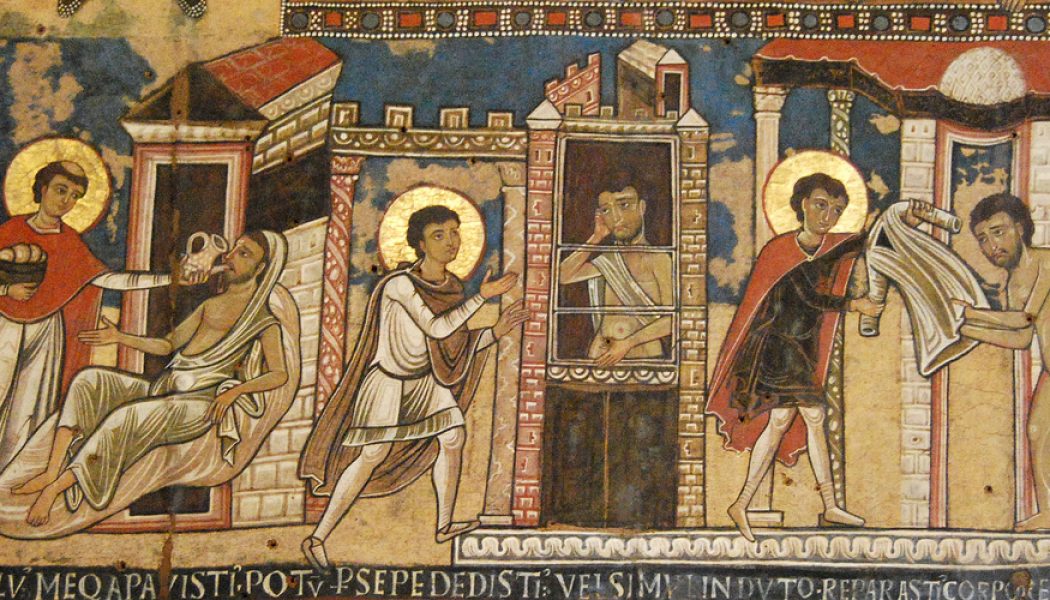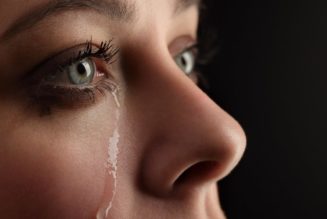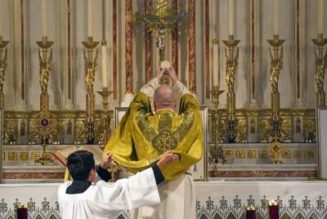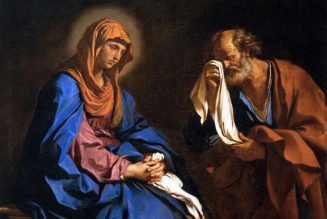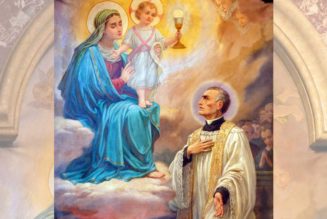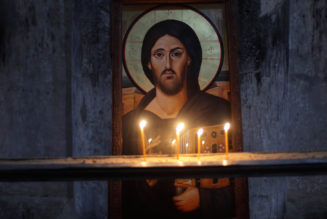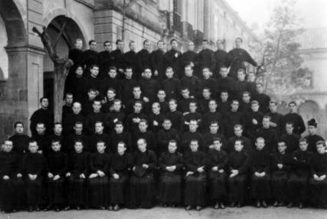‘At this very moment’ he said, ‘the men you imprisoned are in the Temple. They are standing there preaching to the people.’
We might think of “you” as civil governments, or the virus. Or it just might be fear. Or it might be lack of imagination. Most importantly, what seeks to imprison us at all times, seeks to prevent us sharing the Good News is the darkness that tempts us to forgetfulness. Forgetfulness of the deep, abiding need of every person in the world to hear that Good News.
I would like to think that this is a moment in which the Church could rise and truly serve the deepest needs of humanity rather than focus on institutional preservation.
What would that look like?
Specifics would vary, as they do, but in general, the tone would be revealing.
What’s the primary concern?
Institutional preservation? Focused on “Chin up, someday we’ll be together again, look, I put your pictures in the pews, guys, and don’t forget that online giving portal!”
Or is it expressive of a recognition that this is a moment in which people are experiencing great fear and disappointment, are facing real economic hardship, are looking at their plans and expectations challenged or even shattered, and perhaps, for the first time, are confronting the inevitability of death? And are re-evaluating their lives with all of that in mind?
It’s not an I told you so moment.
It’s a here we are moment.
Here we are with the spiritual resources that will help you navigate a world in which you are not in perfect control – because the Biblical and tradition-shaped spiritual vision that is our framework takes that fundamental truth for granted, and guides you with that always in mind: you are gifted and loved, but limited, mortal, and life is unexpected and weird.
Here we are with concrete resources to help you in practical ways in the short and long-term because that’s what we do, and they are called Works of Mercy, and we do them because we are obliged by our Lord to do so. It’s not an option.
Here we are with two thousand years of experience of life in every corner of this world, in every type of social, political and economic structure, ready to think imaginatively and courageously – and humanely – about the shape of life after this. If there is an after.
Here we are with two thousand years of thinking deeply about the education of the human person, with the most contact time in this work of any human institution – here we are for you, parents. Here we are for you, communities.
Here we are with two thousand years of caring for the sick – with the most contact time in this work of any continuing human institution – here we are, families and communities.
Here we are with the gift of revealed truth about the question that haunts you right now. I’m going to die. My family member, my friend died. Why did this happen? How do I balance fighting it and accepting it? If I’m only going to die, what’s the purpose of my life? And what comes after? I’m scared.
Here we are.
Here we are with a man hanging on a cross in the center of every on of our buildings, every church, every family home, hanging around our necks, clicking in our pockets and purses at the end of our rosaries, going along with us into every corner of our lives, joyful, glorious and sorrowful moments. Here we are. We get suffering. We can help you figure out suffering is all about and how to live with it and even find meaning in it. Here we are. With Him, the Suffering Servant. For you. Will you listen? He wants you to.
Here we are.
Such suffering, such fear, so many questions, so many shattered illusions. Such has the world always been, no matter how much we try to hide it, and this reality is something that the Catholic worldview has always understood – realism, acceptance and trust. Not that “things will get better” in an earthly sense, but trust that all of what we’re experiencing on earth means something, is an opportunity to grow in wisdom and love, is a moment to serve, love and sacrifice for others, with an understanding that this is not all there is, and that even as we seek to rightfully preserve the earthly lives God has given us, that’s not our ultimate goal, as Jesus reminds us in today’s Gospel:
God loved the world so much that he gave his only Son,
so that everyone who believes in him may not be lost
but may have eternal life.
All of what we are experience might seek to imprison us, but we can’t let it. We can’t be confined and held back from bringing comfort, from being a part of people’s lives as they re-imagine and reconfigure what their lives will look like, from helping the suffering – in the way that Catholics have always aided the suffering – tending to the body and the soul through spiritual and corporal works of mercy – for every human being in need, not just those on our registration rolls.
Perhaps go back and read the stories of the Philadelphia nuns who ministered during the Spanish Flu – which I wrote about here and which you can find here.
It’s not just what they did in that moment and their courage. Although that’s at the center.
No, I think the instructive takeaway has more to do with the understanding of what’s needed in the moment.
Are we, perhaps, imprisoned?
Is the primary concern about making sure the club stays solvent and the clubmembers stay connected and feel okay?
Or is it about what, well, Jesus calls us to. Bring Him to the entire world – because the world is always sick and in need of what he offers – comfort, hope, healing, clarity, courage, and life lived, not for the present, but for eternity.
It’s not about the club. It’s about the world. The world at your doorstep, but still – the world.
Two of the Sisters in this convent assisted families in distress in the private homes of this neighborhood. Ten Sisters went to the Jewish Hospital following an urgent appeal for help, which was made through the medium of the Most Reverend Archbishop. In this hospital the work of the Sisters extended to every branch of service. They washed dishes, arranged and carried trays, helped in the laundry and cared for the sick. Someone seems to have been apprehensive about the menial work of the Sisters, and it was reported to the Superior. Her answer was quite naturally in substance : ” The Sisters were called, not to choose their work, but to help. No work is menial that is not done for a mean motive. The Sisters’ motive is the love of God, and the love and relief of suffering brother men.”
Two Sisters were sent to the City Hospital in response to an urgent call for help. The remaining Sisters did district nursing and cared for families in absolute need. ” It was not always poverty,” writes one of the Sisters, ” that left the people destitute during the epidemic. It was the fear and dread of the scourge on the part of kindred and neigh- bors, who ordinarily would have cared for friends.”
” You have come in answer to our prayers,” was the greeting of one family in dire need. Another poor man told the Sisters that he had prayed God all night for some one to come to give him a drink of water.
Here we are.

